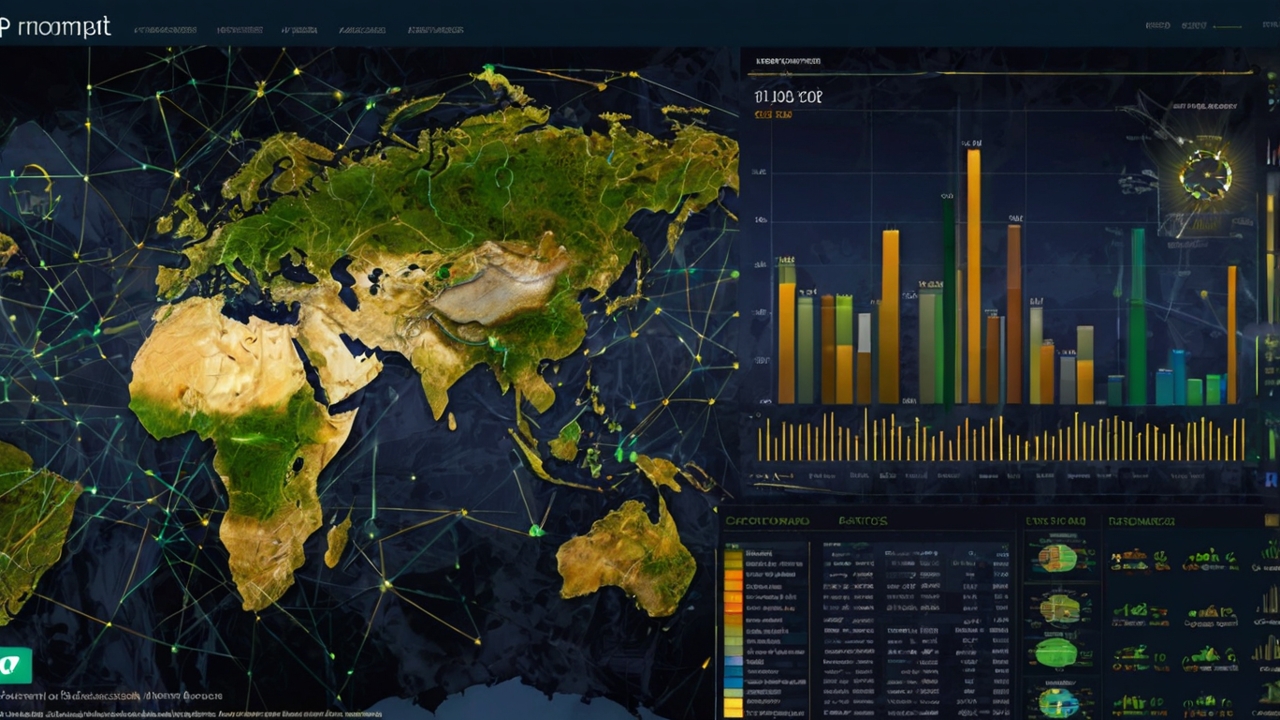Introduction: Why International Investing is Essential for the Arab Investor?
In an era of globalization and economic interconnectedness, international investing has become a necessity for Arab investors seeking sustainable returns and diversification of their investment portfolios. Relying solely on local markets is no longer sufficient; it requires exploring investment opportunities in diverse global markets.
Chapter 1: Benefits of Geographic Diversification for the Investment Portfolio
1.1 Reducing Risk
Geographic diversification helps reduce the risks associated with local markets. For example, if the local market is experiencing an economic downturn or political instability, investments in other markets can offset potential losses.
1.2 Accessing New Growth Opportunities
Emerging and developing markets often offer higher growth opportunities compared to developed markets. Investing in these markets can generate significant returns in the long run.
1.3 Hedging Against Currency Fluctuations
Investing in assets denominated in different currencies can protect the investment portfolio from exchange rate fluctuations. For example, if the value of the local currency declines, assets denominated in foreign currencies will automatically increase in value.
Chapter 2: International Investment Strategies for the Arab Investor
2.1 Direct Investment in Foreign Stocks and Bonds
Arab investors can directly purchase foreign stocks and bonds through financial brokerage firms that offer trading services in global markets.
2.2 Exchange-Traded Funds (ETFs) and Mutual Funds
Exchange-traded funds and mutual funds are an excellent option for investors who want to diversify without having to manage their investments directly. These funds invest in a variety of assets in different markets.
2.3 Investing in International Real Estate
Investing in international real estate can provide stable cash flows and additional diversification for the investment portfolio. Investors can purchase residential or commercial properties in other countries and rent them out for income.
2.4 Investing in Startups and Private Companies
Investing in startups and private companies in global markets can generate very high returns, but it requires careful study and a higher risk tolerance.
Chapter 3: Promising Markets for International Investment
3.1 Emerging Markets in Asia
Countries like China, India, Vietnam, and Indonesia offer tremendous growth opportunities thanks to their growing economies and large consumer bases.
3.2 Emerging Markets in Africa
Africa is considered a promising continent thanks to its rich natural resources and growing youth population. Countries like Nigeria, South Africa, and Kenya offer attractive investment opportunities.
3.3 Developed Markets in Europe and North America
Developed markets provide stability and security for investors, as well as access to leading global companies in various sectors.
Chapter 4: Risks Associated with International Investing and How to Manage Them
4.1 Currency Fluctuation Risks
Exchange rate fluctuations can negatively affect investment returns. Investors can hedge against these risks using financial instruments such as futures contracts and options.
4.2 Political and Legal Risks
Investing in countries with unstable political and legal systems can be risky. Investors should carefully study the political and legal environment before making an investment decision.
4.3 Economic Risks
Economic recession, inflation, and rising interest rates can negatively affect the performance of investments. Investors should monitor economic indicators and take the necessary measures to protect their investment portfolios.
Chapter 5: The Role of Technology in Facilitating International Investment
Technology plays a crucial role in facilitating international investment. Online trading platforms and digital banking services enable investors to access global markets easily and at a low cost.
Chapter 6: Taxes and Legal Considerations for International Investment
International investment is subject to complex tax laws and regulations. Arab investors should consult with tax and legal professionals to ensure compliance and avoid legal problems.
Chapter 7: Building a Balanced International Investment Portfolio
Building a balanced international investment portfolio requires defining investment goals, risk tolerance, and the investment time horizon. Investors should diversify their investments across different assets and markets to reduce risk and maximize returns.
Chapter 8: Case Studies: Success Stories of Arab Investors in Global Markets
Present real-life success stories of Arab investors who have achieved significant returns through international investment. Analyze the strategies they used, the challenges they faced, and how they overcame them.
Chapter 9: Practical Tips for Arab Investors Interested in International Investing
- Start with a small amount and invest gradually.
- Invest in markets that you understand well.
- Consult a financial advisor specializing in international investment.
- Be patient and do not expect quick profits.
- Review your investment portfolio regularly and adjust it as needed.
Chapter 10: The Future of International Investment for the Arab Investor
With continued globalization and technological advancement, the international investment opportunities available to Arab investors will increase. Investors should prepare to take advantage of these opportunities by acquiring the necessary knowledge and skills.




